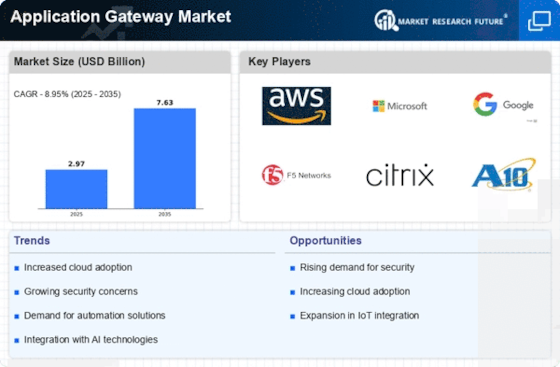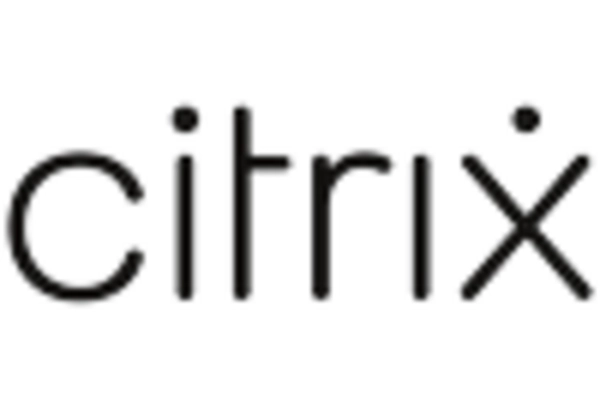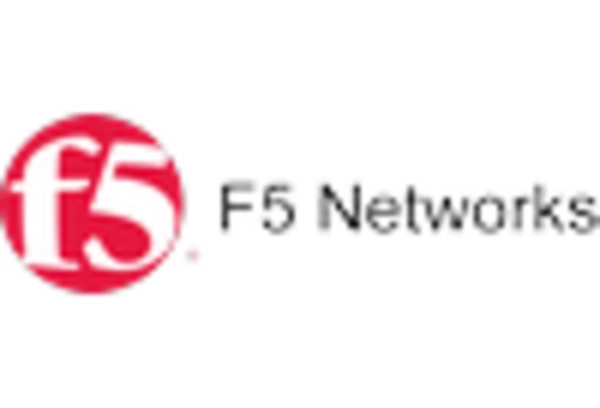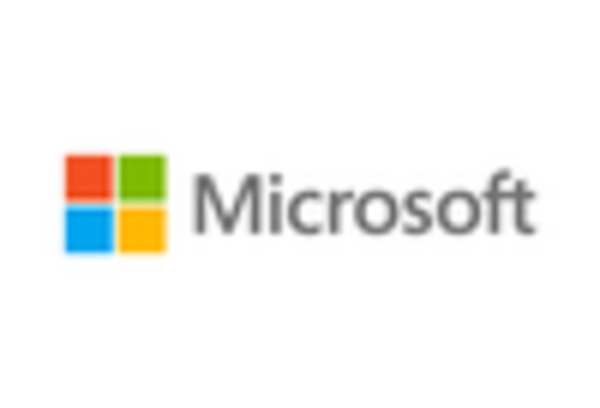Market Trends
Key Emerging Trends in the Application Gateway Market
Trends in the Application Gateway market have been changing quickly, which is in line with the growing use of computers and the need for safe and efficient application delivery. Recently, there has been a huge increase in the number of companies buying Application Gateways. This is because companies want to make their web applications safer and improve their overall performance. The growing focus on cloud-based solutions is a clear trend that is driving this market. The need for strong gateway solutions that can always work with cloud systems has become essential as businesses move more and more of their applications to the cloud. This move to the cloud is also made possible by cloud-based Application Gateways, which give businesses the flexibility and mobility they need to meet changing customer needs and responsibilities.
The way the market for Application Gateways shows that security is still a big concern for businesses. As digital threats become more common and more advanced, businesses are focused on plans that offer full security features. Application Gateways are very important for protecting apps from different types of digital threats, like DDoS attacks, SQL injection, and cross-site planning. Application Gateways with cutting-edge security features, such as Web Application Firewalls (WAFs) and bot filtering, have become very popular in the market. These features protect sensitive data and make sure that applications can always be accessed.
People are also interested in Application Gateways with cutting-edge traffic the board notes because of the growing focus on client experience and application performance. Some of these parts are load balancing, content storage, and SSL end, all of which make application delivery faster and more reliable. The combination of man-made awareness (artificial intelligence) and AI (ML) skills is another important trend in the Application Gateway market. These new technologies are being used to improve Application Gateways' mental abilities, which lets them gradually adapt to changing conditions and, as a result, improve performance. Application Gateways that are powered by artificial intelligence can look at traffic patterns, spot possible security risks, and make constant adjustments to ensure a consistent and safe user experience. These patterns are in line with the larger trend in the industry to use artificial intelligence and machine learning (ML) in a variety of IT solutions to make them smarter and faster. The market is also moving toward Application Gateway management tools that are more complete and easier to use. As businesses try to get non-technical users to manage and watch over application delivery, sellers are focusing on making management tools that are natural and easy to use. This pattern takes care of a wide range of clients within organizations, letting different groups work together effectively to manage and speed up application delivery without needing a lot of technical knowledge.


















Leave a Comment